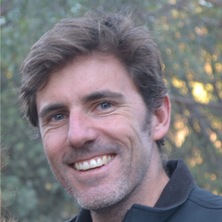

18th August – Assoc. Professor Matt McDonald
12 – 1pm, Room 275, Global Change Institute (Building 20)
States and international institutions, including Australia, increasingly identify climate change as a threat to security. But the way this linkage is made, and its effects, are markedly different across different contexts. In this presentation I outline the linkages made between climate change and security- in both academic literature and policy- and explore the implications of these discourses of climate security. In light of Australia’s recent announcement of a Senate Inquiry into the national security implications of climate change, I will particularly focus on the questions of how this linkage might be made in the Australian case (drawing on the experience of other states); and whether the security ‘framing’ will be helpful in driving public concern or policy, examining both mobilising capacity and the potential for perverse policy outcomes.
Matt McDonald is a Reader in International Relations in the School of Political Science and International Studies, and is currently completing a research project on ‘ecological security’ in the context of climate change.


